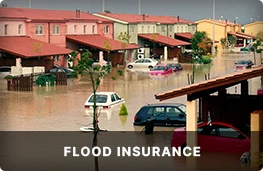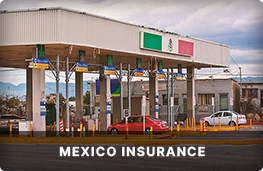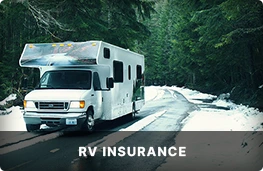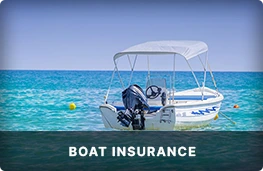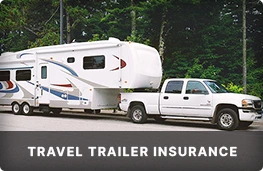Things to consider when planning a summer trip during a pandemic
Coronavirus: What to Consider While Planning Your Summer Vacation
Even during the best of times, rest and relaxation are an important component of maintaining your overall well-being. And in the summer, what better way to relax than a vacation.
The need to get away and recharge probably feels more necessary now than ever before. But while a summer vacation may be just what your mind needs, is it safe to travel during the COVID-19 pandemic?
The CDC continues to recommend staying home over traveling, since travel increases your risk of getting and spreading COVID-19.
Stay up-to-dateBy signing up, you will receive our newsletter with articles, videos, health tips and more.Subscribe
But, you may still feel like you need to just get away. If you are willing to take a trip, here are four things to consider as you plan a summer vacation during the COVID-19 pandemic.
Where should you go?
Before deciding on a destination for your summer vacation, ask yourself the following questions:
- Is the virus spreading where I live?
- Is the virus spreading where I want to go?
You can use the CDC's COVID-19 data tracker to see the number of cases and infection rate from state to state, as well as total cases and deaths from county to county.
If you live in an area where the virus is spreading, consider being extra cautious in the weeks leading up to your vacation. This can help reduce your chances of getting sick and inadvertently spreading COVID-19 during your trip. You might even consider postponing your trip until cases lower in your area.
If the virus is spreading in the area you'd like to travel to, choose a different destination.
Once you do decide where you're going, it's important to be aware of any specific rules being enforced that you'll need to comply with during your trip. You can find this information by checking the state's health department website.
What will you do while you're there?
Wherever you chose to go for your summer vacation, you'll want to be sure that avoiding crowds and maintaining six feet of distance between yourself and others is as achievable as possible.
For instance, social distancing is much harder in an urban city full of busy sidewalks and restaurants than it is in a city with significant geographic sprawl, where you can easily drive yourself from place to place.
The easiest and safest way to ensure social distancing on your vacation is to choose a destination that offers plenty of outdoor spaces and activities, including:
- Hiking at a national or state park
- Hanging out at a beach
- Fishing in a lake, river or the ocean
- Rafting or tubing on a river
Keep in mind, however, that popular outdoor spots will likely draw even larger crowds this summer, as many people will be heading to the great outdoors to vacation safely during the pandemic.
To give yourself the best chance of staying healthy while still having a relaxing vacation, do your research ahead of time. This can help you avoid peak hours at popular outdoor spots or find other places and activities that are much less crowded. In addition, have a backup plan (or two). If you get to the beach and it's already full of people, move on to the next beach on your list.
You may also want to consider choosing a destination where it's easy to get around by car, rather than having to rely on public transportation, as well as ordering takeout instead of dining at restaurants.
How will you get there?
Given the need for social distancing, 2020 may become the year of the summer road trip.
When compared to sitting near a bunch of strangers on a plane, driving definitely seems like a safer way to travel during a pandemic. But, a road trip isn't completely safe. You'll still need to be sure you're taking extra precautions while stopping at gas stations and rest stops.
How to keep your road trip safe:
- Have the essentials handy. Pack plenty of alcohol-based hand sanitizer and disinfectant wipes, and don't forget your cloth mask.
- Keep six feet of distance between yourself and others. While stopping at a rest stop or convenience store, wear your mask, avoid lines and maintain your distance.
- Sanitize your hands. Consider having a bottle of hand sanitizer for each traveler in your party, and carrying it in your pocket when you're not in your car. Disinfect your hands before and after using the restroom, checking out at the convenience store and pumping gas.
- Disinfect the gas pump. Before pumping gas, use disinfectant wipes to clean the gas pump station — wiping down the keypad and the gas pump handle. If you don't have wipes, use a paper towel, napkin or tissue to touch the gas pump.
- Skip the convenience stores altogether. To limit the amount you're stopping while on the road, bring your own snacks and pack a cooler with sandwiches and drinks. If you need to stop for food, consider going to a restaurant that has a drive-thru or offers curbside pickup.
In some cases, it may not be realistic to drive to your destination, so your travel plans may include an airport and airplane. Keep in mind, air travel brings you into close contact with many other people, as well as a variety of frequently touched surfaces. In addition, you'll be forgoing social distancing for an extended period of time while on the airplane.
How to make air travel as safe as possible:
- Make smart choices while booking. Reducing your risk starts with the decisions you make while booking your flight — such as avoiding layovers and connections, choosing a destination with a relatively short flight and opting for a window seat.
- Wear a cloth face mask. In fact, some airlines may require that you wear a mask while in the airport, as well as on the aircraft.
- Spread out in the terminal. While waiting to board your plane, keep six feet of distance between yourself and others as often as possible.
- Sanitize your hands. Carry your own alcohol-based hand sanitizer and use it after coming into contact with door handles, kiosk touch screens, security bins, escalator banisters and other frequently touched surfaces and items. As always, wash your hands thoroughly after using the restroom.
Where will you stay?
The two primary lodging options during any summer vacation are typically hotels and home rentals. During the COVID-19 pandemic, you may be wondering if one is safer than the other. In reality, there are pros and cons to each.
The pros of staying at a hotel during COVID-19: Most hotels typically have strict cleaning standards and housekeeping protocols, and many have further enhanced these measures during the pandemic. This means you probably don't need to worry about potentially contaminated surfaces in your hotel room.
The cons of staying at a hotel during COVID-19: Hotels are typically full of other people and common spaces. While staying at a hotel, you'll need to make sure you keep plenty of space between yourself and other guests in hallways, elevators and common spaces.
The pros of staying at a home rental: Renting a private home can be a good way to limit the number of people you come into contact with during your trip. In addition, it gives you the ability to cook your own meals — which can keep you from heavily relying on restaurants during your trip.
The cons of staying at a home rental: Home rentals may not necessarily come with the same housekeeping guarantee you can expect from a reputable hotel. Before booking, ask what's being done to ensure the home is thoroughly cleaned between guest stays. And, upon arrival at your rental home, you may want to consider using disinfectant wipes to sanitize commonly touched surfaces where germs tend to hide.
The COVID-19 pandemic certainly makes planning a safe summer vacation challenging. There are a lot of choices to be made, and some choices are safer than others. Ultimately, though, it's your vacation. It will be up to you to weigh the risks and rewards of travel and make smart, safe decisions as often as you can throughout your journey.
Comments
By accepting you will be accessing a service provided by a third-party external to https://www.affordablequalityinsurance.net/




